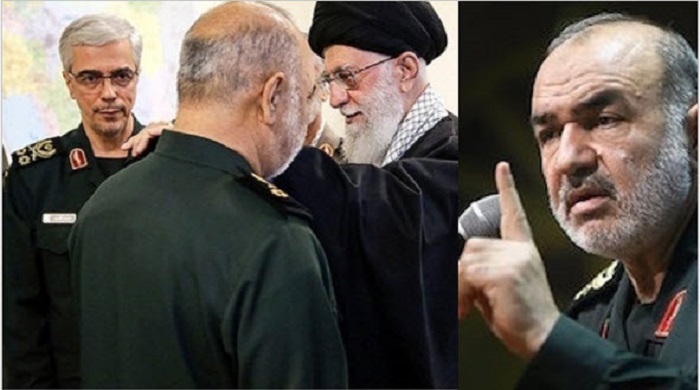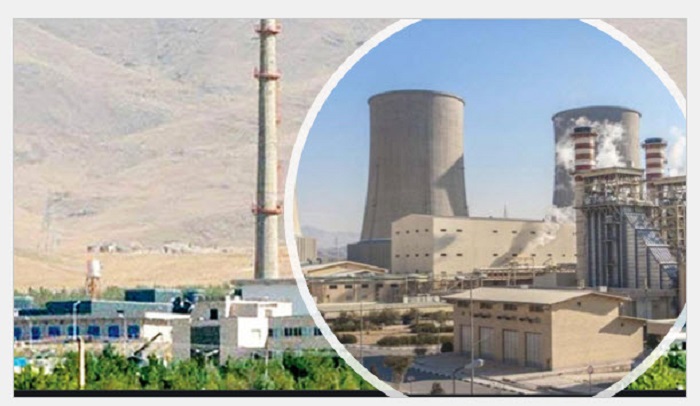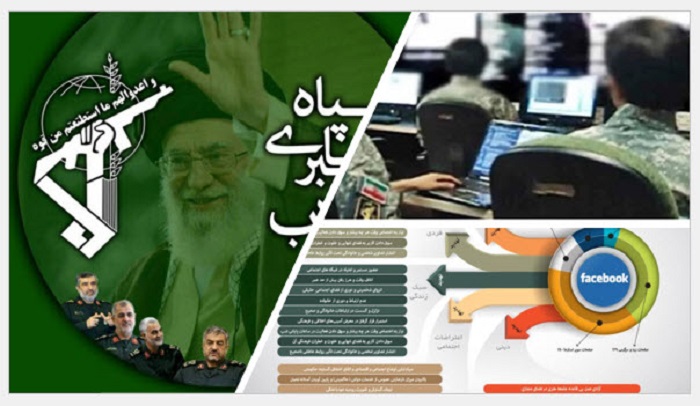
Hossein Salami earlier stated that the IRGC’s cyber army and the paramilitary Basij are capable of combating the ‘Global Arrogance’ cyber warfare (the USA and the Western countries).
Hossein Salami, the chief of the Iranian regime’s Revolutionary Guards (IRGC), earlier stated that the IRGC’s cyber army and the paramilitary Basij are capable of combating the ‘Global Arrogance’ cyber warfare (the USA and the Western countries).After the recent cyber-attack on the country’s gasoline infrastructure, which caused disruptions for approximately a week, this response seems a little odd.
Regime-affiliated experts more attacks will be possible
The weekly ‘Sobh Sadegh,’ a Revolutionary Guards-affiliated journal, recently published an article titled ‘Cyber Confrontation,’ about the Iranian government’s cyber operations.
Initially, the IRGC blamed Israel for attacks on Iranian nuclear facilities, including the Natanz site, the Karaj nuclear plant, the IRGC’s Jahad Self-Sufficiency Research Center, and an attack on the intelligent fuel system.
Despite suffering significant defeats in cyber warfare in recent years and months, the Revolutionary Guards claim to have the world’s fourth most formidable cyber force.
Notwithstanding this claim, the Revolutionary Guards have been unable to prevent severe cyber-attacks on the regime’s vital military and security institutions, and many regime-affiliated experts are warning the regime that further attacks will be possible in the near future.

Initially, the IRGC blamed Israel for attacks on Iranian nuclear facilities, including the Natanz site, the Karaj nuclear plant, the IRGC’s Jahad Self-Sufficiency Research Center, and an attack on the intelligent fuel system.
(IRGC),allocated $16 billion to their own nuclear plan
Following the reactions to the remarks of the weekly ‘Sobh Sadegh,’ this paper, refusing to acknowledge the IRGC’s weakness in the face of repeated defeats in the field of cyber warfare, referred to the attacks on sensitive military, nuclear, and missile centers as ‘Israel’s claim,’ reversing its previous statements.
According to the Stockholm International Peace Research Institute (SIPRI), Iran’s army forces, including the National Army and the Islamic Revolutionary Guard Corps (IRGC), have appropriated nearly $16 billion of the country’s resources to themselves. While most of the allocations aren’t public, especially in the areas of excess activities and the regime’s cyber warfare, this sum is thought to be substantially higher.
The majority of it appears to be utilized for domestic repression and internet and press control.With the foundation of the ‘Center for the Study of Organized Crime of the Revolutionary Guards’ in 2007, the first attempts to impose censorship and repression in cyberspace were taken.

the Iranian regime has finally agreed to resume nuclear talks in Vienna on November 29.
IRGC’s cyberwar against the people are far more
Following that, in 2008, the Revolutionary Guards’ ‘Basij Force’ launched 10,000 blogs in 10,000 ‘Basij bases’ across the country to support the censorship and repression program.
The IRGC’s censorship and cyberwar against the people are far from over. The IRGC formed the ‘Basij Cyber Council’ in 2009, ‘Supreme Council of Cyberspace’ in 2011, ‘National Cyberspace Center’, ‘Owj Organization’, ‘IRGC Cyber Defense Command’ and its promotion to ‘IRGC Cyber Security Command’, ‘Gerdab site’, ‘Khyber Cyber Base’, ‘Mersad and Nasr’ companies, ‘Cyberspace Cultural Operations Battalions’, ‘Saraj Cyberspace Organization’, ‘Cyber Base and New Threats’ to pursue its censorship policy inside Iran.

The IRGC formed the ‘Basij Cyber Council’ in 2009, ‘Supreme Council of Cyberspace’ in 2011, ‘National Cyberspace Center’, ‘Own Organization.
According to Iran watchers, the regime’s cyber warfare is aimed at suppressing protests and instilling fear in the population in order to prevent the creation of any anti-regime movement. For example, after the bloody November 2019 protests, the regime’s cyber agents paved the way for the protesters’ execution by trending the ‘#Execute’ hashtag on Persian-language Twitter and demanding the death penalty against peaceful protesters, claiming that death-row demonstrators had committed murder, invasion of privacy, armed robbery, and bombing attacks.
However, the regime’s cyber army isn’t powerful enough to take on powerful adversaries, and its primary objective is to supplement and aid internal persecution.
MEK Iran (follow us on Twitter and Facebook)
and follow Maryam Rajavi’s on her site Twitter & Facebook
and follow NCRI (Twitter & Facebook) and People’s Mojahedin Organization of Iran – MEK IRAN – YouTube

